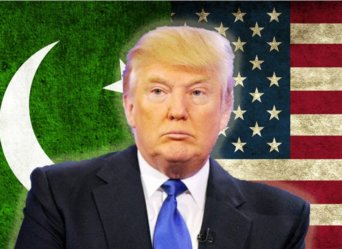- About
- Topics
- Picks
- Audio
- Story
- In-Depth
- Opinion
- News
- Donate
- Signup for our newsletterOur Editors' Best Picks.Send
Read, Debate: Engage.
| located: | Pakistan, USA |
|---|---|
| editor: | Shadi Khan Saif |
The initial impression and unfortunate distractions that come with the US's move to place Pakistan on a “special watch list” for “severe violations of religious freedom” – during a period of growing rift between the two longtime allies – is that Washington is simply flexing its muscles in front of Islamabad.
But, the grim fact is that up to 190 million minority citizens in the South Asian country have long been complaining against systematic persecution for years. So, in this backdrop, the move by Trump's Administration in Washington, in my views, would only complicate the situation – making the picture vaguer, rather than shedding any spot light on a serious human rights issue.
Even though the State Department noted in a statement on Thursday that the protection of religious freedom is vital to peace, stability, and prosperity, these designations are aimed at improving the respect for religious freedom in Pakistan and ten other countries. What was also announced by the US authorities on the same day was a drastic cut in security aid to Pakistan until Islamabad takes action against terrorist organisations, including the Haqqani Network.
Regrettably, the timing of this move by the US patches a pressing human rights issue with a strategic and political one, ultimately diluting the impact of a much-needed action in this perspective.
It is a known fact that not only religious minorities but members of the majority religious group itself have been on the receiving end of the wrath unleashed by intolerance.
Blasphemy in the Islamic Republic of Pakistan is a crime resulting in penalties ranging from a fine to death penalties. According to the Human Rights Commission of Pakistan (HRCP) – a voluntary organisation – that has been documenting blasphemy cases for decades, Muslims constitute the majority of those forced to operate under such laws, closely followed by the Ahmadi community. Data provided by National Commission for Justice and Peace (NCJP) shows a total of 633 Muslims, 494 Ahmedis, 187 Christians and 21 Hindus have been accused under various clauses of the blasphemy law since 1987.
On top of so many incidents of persecution of Christians, Hindus and minority Muslim sects, there are many voices and movements for justice and equality. What this move by the US does is make such forces suspicious in the eyes of common people in countries like Pakistan, where public sentiments towards the west are already negative.
Last year, we saw a provincial assembly legislating a landmark law against forced conversions in Pakistan. The best way to ensure religious freedom is through gradual steps, taken by the people of Pakistan themselves and encouraged by neutral organisations such as the UN, rather than dictated by a country seen by many in Pakistan as an ‘enemy’.
